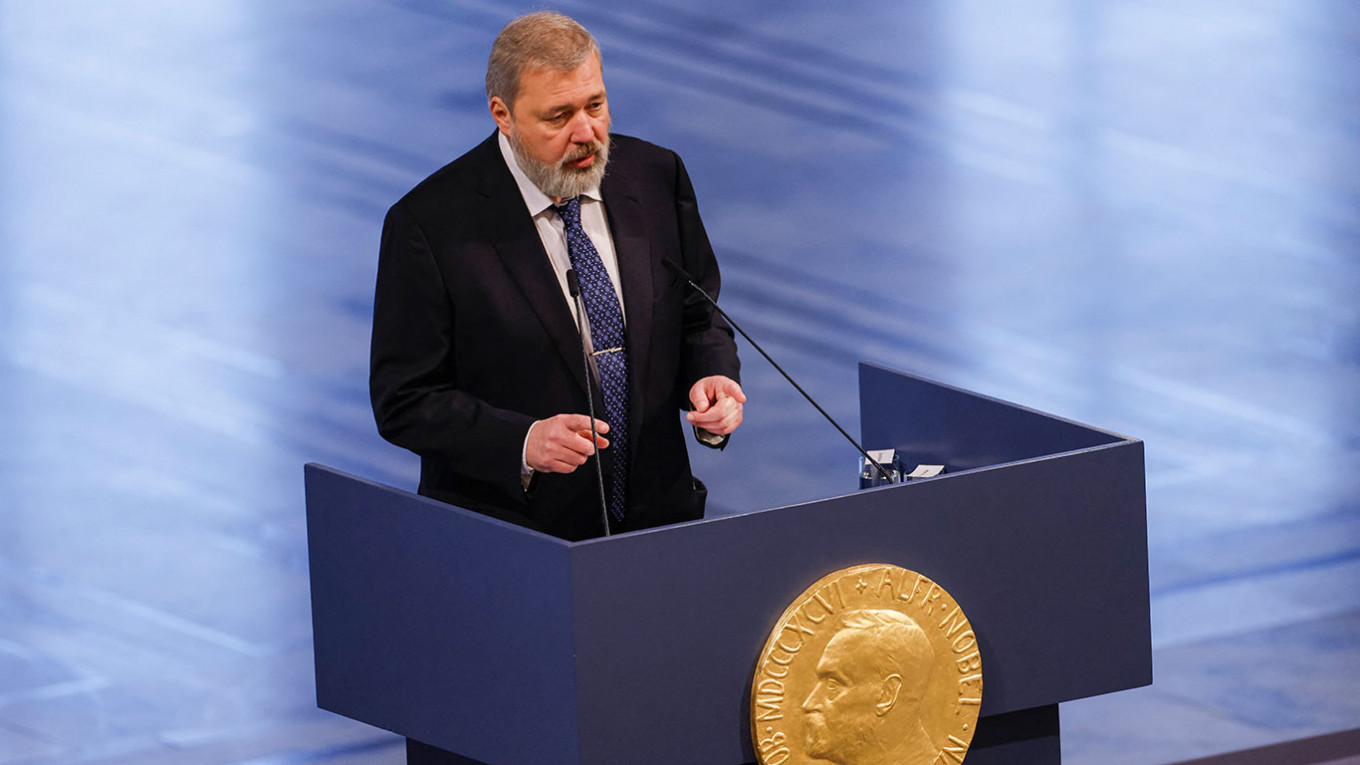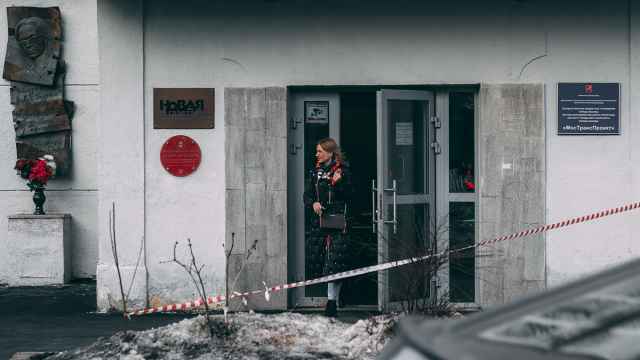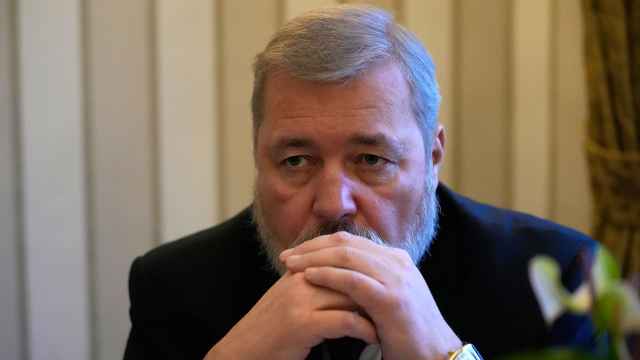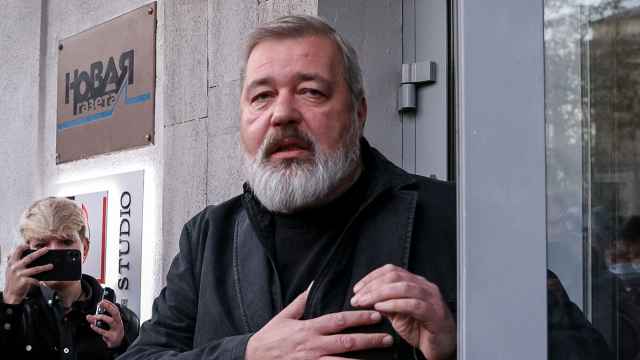Read the full speech here.
Dmitry Muratov, editor-in-chief of the independent Novaya Gazeta newspaper, accepted the 2021 Nobel Peace Prize in Oslo on Friday.
He and Philippine journalist Maria Ressa received the honor for their commitments to protecting press freedom.
Muratov, whose newsroom has had several of its journalists killed in connection with their reporting, dedicated his award to his slain colleagues and decried growing threats to freedom and human rights in Russia and its neighboring countries.
Here are the main highlights from his acceptance speech:
‘The antidote against tyranny’
— “There is a saying in Russian and English and other languages: ‘When the dogs bark, but the caravan keeps walking.’ One explanation is that nothing can hinder the progress of a caravan. The government sometimes derisively says the same about journalists. They bark, but it does not affect anything.
But I was recently told that the saying has an opposite explanation. The caravan drives forward because the dogs bark. They growl and savage the predators in the mountains and the desert. The caravan can move forward only with the dogs around. Yes, we growl and bite. Yes, we have sharp teeth and a strong grip. But we are the prerequisite for progress. We are the antidote against tyranny.”
On Memorial
— “There are two contradicting trends in Russia today. On the one hand, Russia’s president supports the erection of a monument to Sakharov’s 100th anniversary. On the other hand, Russia’s Prosecutor General demands the elimination of the international organization Memorial. ... But Memorial was established by Sakharov. Memorial is not an ‘enemy of the people.’ Memorial is a friend of the people.”
On prison torture
— “We hear more and more often about torture of convicts and detainees. … I am now presenting an initiative of setting up an international tribunal against torture, which will have the task to gather information on torture in different parts of the world and different countries, and to identify the executioners and the authorities involved in such crimes. Of course, I shall rely first and foremost on investigative journalists around the world. Torture must be recognized as the most serious crime against humanity.”
On Ukraine and war
— “Hybrid warfare and the tragic, ugly and criminal story of the Boeing MH17 have ruined relations between Russia and Ukraine, and I do not know if the next generations will be able to restore them …
Moreover, in the heads of some crazy geopoliticians, a war between Russia and Ukraine is not something impossible any longer. But I know that wars end with identifying soldiers and exchanging prisoners.”
On journalism in Russia
— “Journalism in Russia is going through a dark valley. Over a hundred journalists, media outlets, human rights defenders and NGOs have recently been branded as ‘foreign agents.’ In Russia, this means ‘enemies of the people.’ Many of our colleagues have lost their jobs. Some have to leave the country.”
— “I can probably — as always — get questions like: why did your colleagues go there? Yes, to witness. To prove. To see it with their own eyes. Because as the great war photographer Robert Capa said: ‘If your picture isn’t good enough, you aren’t close enough.’
— “‘Aren’t you afraid?’ is the most common question my colleagues get. But this is their mission. As governments continually improve the past, journalists try to improve the future.”
‘I want journalists to die old’
— “Let us rise and honor my and Maria Ressa's reporter colleagues, who have given their lives for this profession, with a minute of silence, and let us give our support to those who suffer persecution. I want journalists to die old.”
A Message from The Moscow Times:
Dear readers,
We are facing unprecedented challenges. Russia's Prosecutor General's Office has designated The Moscow Times as an "undesirable" organization, criminalizing our work and putting our staff at risk of prosecution. This follows our earlier unjust labeling as a "foreign agent."
These actions are direct attempts to silence independent journalism in Russia. The authorities claim our work "discredits the decisions of the Russian leadership." We see things differently: we strive to provide accurate, unbiased reporting on Russia.
We, the journalists of The Moscow Times, refuse to be silenced. But to continue our work, we need your help.
Your support, no matter how small, makes a world of difference. If you can, please support us monthly starting from just $2. It's quick to set up, and every contribution makes a significant impact.
By supporting The Moscow Times, you're defending open, independent journalism in the face of repression. Thank you for standing with us.
Remind me later.






